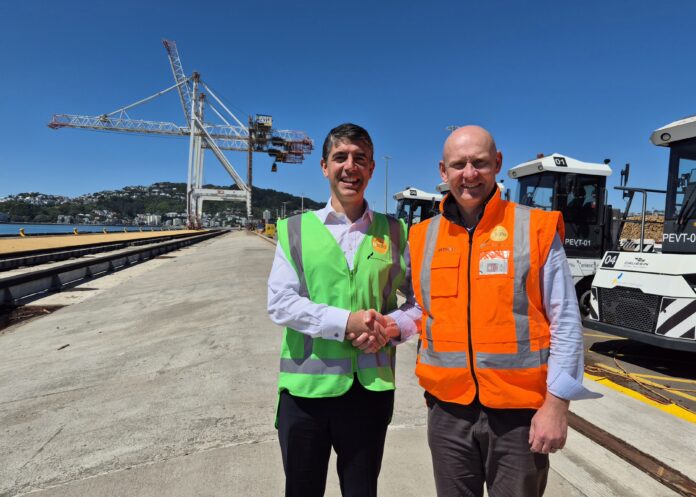CentrePort is taking a significant step in its energy transition by introducing an onsite battery energy storage system (BESS).
This initiative is designed to enhance New Zealand’s port resilience and improve its ability to reduce emissions in the future.
The BESS system will store energy for later use, making renewable energy supply more flexible and helping to address network supply constraints. CentrePort plans to install a pilot-scale 1000kWhr / 500kW BESS facility to meet current operational needs and support electrification efforts.
This BESS system will complement the Wellington port’s recently established 122kW solar array, and a larger 430kW solar array is scheduled to be built in 2025.
The Chief Executive of CentrePort, Anthony Delaney, emphasized that the pilot BESS will improve the efficiency of existing assets, increase resilience, and facilitate the adoption of low and zero-emission solutions in the future.
CentrePort’s commitment to sustainability is already evident through its fleet of 100% electric port trucks, and the company is exploring further low-emission plant options. Delaney noted that the BESS system not only benefits the port and its customers but also supports New Zealand’s broader supply chain, particularly in managing local energy constraints.
The BESS initiative is backed by a US$500,000 loan from Ara Ake, an organization dedicated to advancing energy innovation in New Zealand. This collaboration aims to demonstrate the commercial potential of customer-led BESS solutions in addressing energy challenges.
CentrePort’s progress in its energy transition also includes its renewable energy generation, battery management systems, and energy-efficient infrastructure like LED lighting across its container terminal. Looking ahead, the port anticipates expanding its renewable energy capacity, including further electrification projects like container handling plant electrification and shore power for ships, which have already received support from EECA’s Low Emission Transport Fund.
“Onsite renewable energy generation and storage is fundamental to our future. It ensures we have a cost-effective, resilient, and flexible system powering the most efficient operating system,” stated Delaney. “In addition, our pilot BESS project will allow us to get a better understanding of energy storage so we can make the best investment decisions as we look to scale up in the future.”







